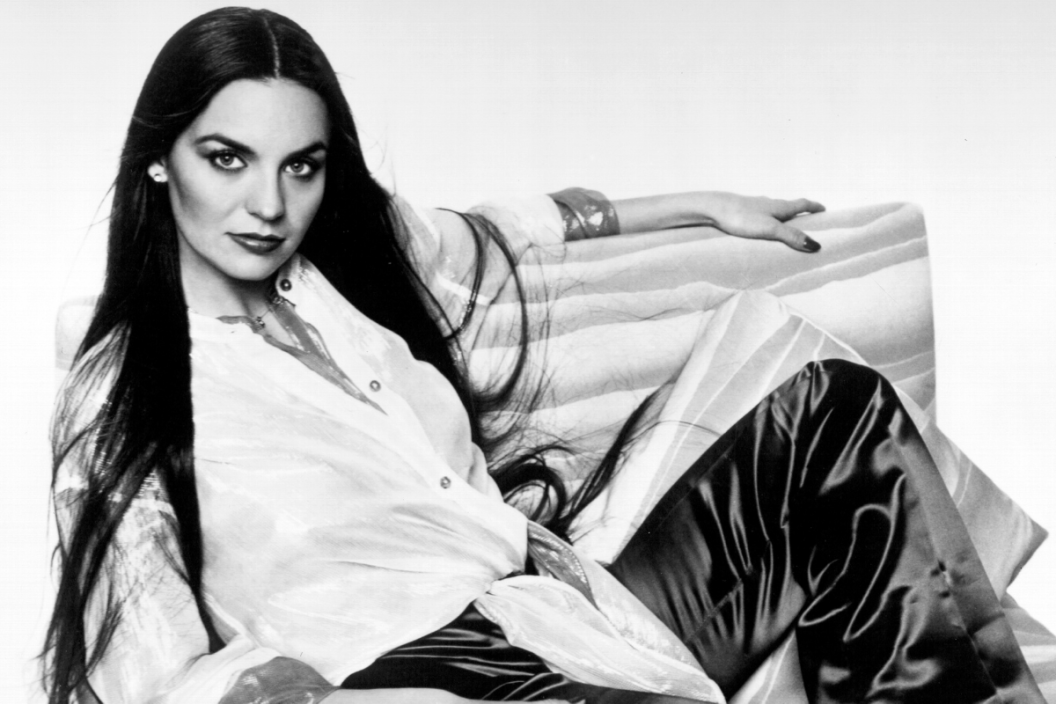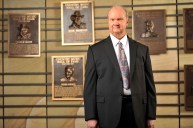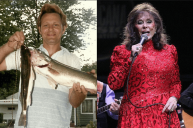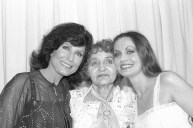The brilliant and varied career of country singer Crystal Gayle can be summed up in three truths. She's anotherCoal Miner's Daughter from one of country music's most influential families, her ankle-length hair may be as iconic as Willie Nelson's headbands and her 1977 hit single "Don't It Make My Brown Eyes Blue" sounds as fresh now as Linda Ronstadt's color-coded hit from the same year, "Blue Bayou."
Of course, there's more to Gayle's story than being born into the same Butcher Hollow household as older sister Loretta Lynn. She's not just someone who's fashion-forward in both Nashville and Hollywood, either. And like Johnny Paycheck and others with a career-defining song, she's responsible for numerous country hits, including a "You and I," a memorable duet with Eddie Rabbitt. Yet it's worth exploring the story behind "Don't It Make My Brown Eyes Blue" and its crossover success.
Country Goes Pop (And Jazz)
Read More: Meet Glen Campbell's Talented Kids
The jazz-tinged ballad in question reached Gayle's already blue eyes for approval after producer Allen Reynolds claimed the song from its writer, Richard Leigh. Initially, Leigh envisioned it as a Shirley Bassey song. It remains the best-known country song written by Leigh, the songwriter behind Reba McEntire's "The Greatest Man I Never Knew," Steve Wariner's "Life's Highway," Gayle's "Wrong Road Again" and a handful of other memorable singles.
"Don't It Make My Brown Eyes Blue" became the first single off Gayle's 1977 album We Must Believe in Magic.
Gayle's God-given talent as a singer and her matchless grace get most of the credit for the song's success, and for good reason. Yet it's another familiar name to country music fans whose work helped hook in listeners across the globe. Famed session musician Hargus "Pig" Robbins came up with the acoustic piano riff that's key in keeping this pop hit from becoming a jazz standard, hidden away from Gayle's growing throngs of supporters.
An International Crossover Hit
Beyond conquering Billboard's country charts in the United States, the song was an international crossover success. It sat atop the Cashbox Top 100 for two weeks, topped multiple RPM charts in Canada and reached the second spot on the Billboard Hot 100—behind Debbie Boone's inescapable "You Light Up My Life." Momentum continued at the 1978 Grammy Awards when Gayle claimed the only Best Female Country Vocal Performance statue of her decorated career.
It's hard to imagine many other country singers getting this much out of a would-be Shirley Bassey song. No wonder most cover versions, including cuts by French singer Mireille Mathieu and Young Marble Giants collaborator Alison Statton, came from outside of Nashville. Although Carrie Underwood can definitely belt it out with the best of them, as heard in 2016 when Underwood invited Gayle to join the Grand Ole Opry. Others in country music to cover Gayle's best-known single include another big dreamer from the hills, Dolly Parton.
This story originally ran on May 10, 2018.




